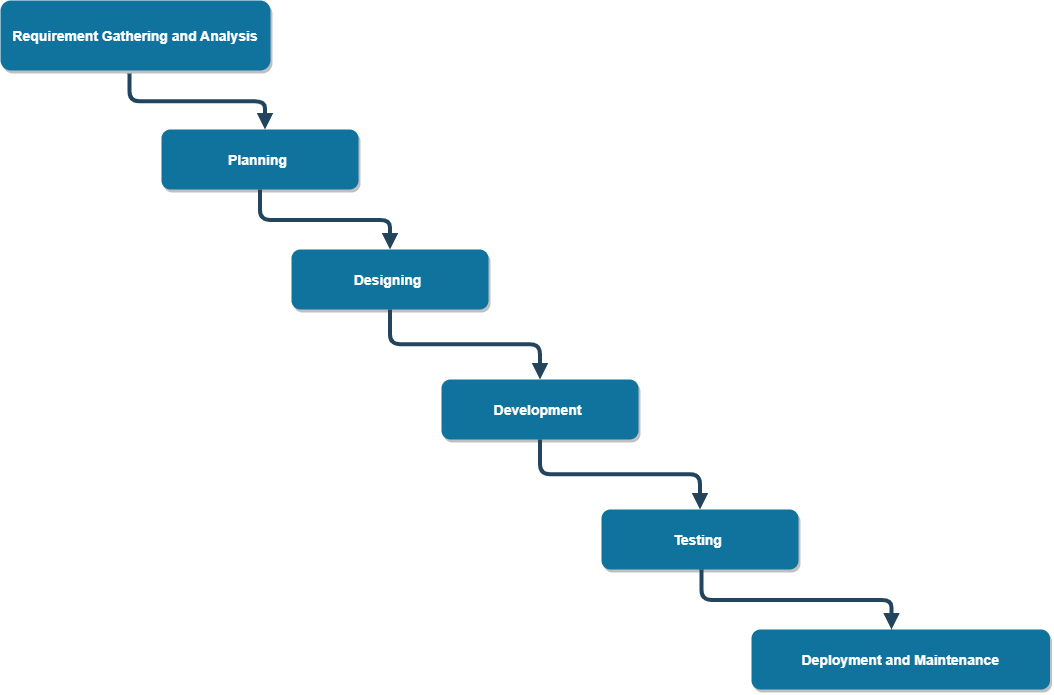Introduction:
The phrase Software Development Lifecycle (SDLC) refers to the multi-step process that begins with source code and progresses through software testing, packaging, and beta testing, to deployment and production. There are several SDLC models available in software engineering and selecting the appropriate one for your project is half the fight in building a successful product.
SDLC -Software Development Life Cycle
Software Development life cycle is a system for developing software that encompasses phases such as planning, design, development, testing, and deployment, with each phase containing a set of activities and deliverables. Tracking and Control mechanism for software projects.
SDLC Goals
Create high-quality software that meets the client’s expectations, as well as software that is bug-free within cost estimates and time, provides a clear picture of the complete system, including resources, timelines, and Provides goals and deliverables that satisfy the standards of each party participating in the project, keeps track of the whole process, allows for easy cost evaluation, and evolution of the produced system.
Most widely used and dependable SDLC models
- Waterfall model
- Iterative model
- Spiral model
- V-shaped model
- Agile model
- Devops
SDLC Phases:

Requirement Gathering and Analysis: SRS (Software Requirement Specification)
Gathering requirements from clients by interacting with them. Typically, Senior Team members or Domain Experts will interact with clients. They will create SRS (Software Requirement Specification) based on the requirements. SRS forms a bridge between all teams involved in software development. It is a clear requirement document that achieve the scope of the software.
Planning
The team decides if the requirements may be added to the software. Following that, a Requirement Specification document is created. This will be used as a guidance for the next step of the SDLC.
Designing
Design requirements created during the designing phase are used as input for the fourth stage of the SDLC. During the design phase, testers must develop an appropriate testing approach. It specifies what must be tested and how it must be checked.
Development and Testing
Development teams consider development and testing to be a single phase, while others divide it into two sub-phases. Regardless of the option a development team chooses, the overall procedure stays the same. It’s all a question of personal choice.
Deployment and Implementation
The deployment phase completes the software development life cycle (SDLC) by putting the product into production. The product is ready to go live when the project team tests it and it passes each testing step. This signifies that the product is ready for usage in a real-world context by all end users.
Using a DevOps Approach to Disrupt Traditional SDLC
A robust DevOps system allows you to deliver what the market demands in a standardized, automated, and well-governed manner.
Having a comprehensive grasp of the issues your SDLC faces, as well as the existing and intended status of your development system, are powerful first steps.
DevOps emphasizes the use of processes that emphasize cooperation and communication in order to create, test, and release applications quickly, often, and reliably.
DevOps goals:
- A group of surroundings that are all the same.
- Reducing the number of new releases that fail
- reducing the time between versions
- A shorter mean recovery time between releases
Conclusion:
Embracing DevOps connects each team together in a methodical manner, so that each group is more effective as a result of everyone working together to achieve the goal.
